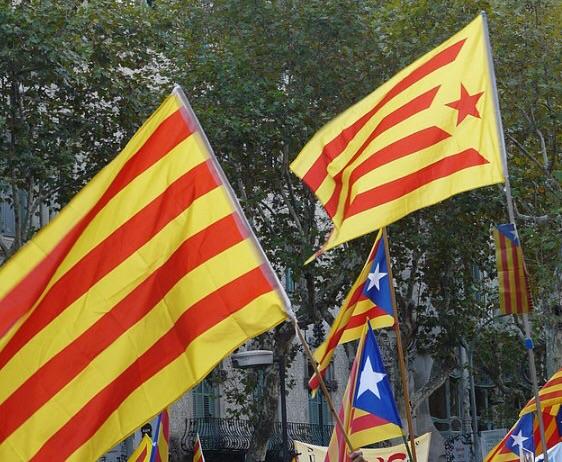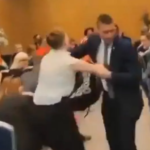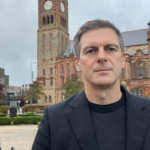On Sunday 1 October Catalonia held its long awaited referendum on independence from the Spanish State. Mariano Rajoy, the right wing Spanish Prime Minister, responded by sending in the Guardia Civil.
The resulting scenes of the Spanish police battering Catalan citizens simply trying to exercise the right to vote sent shock waves round the world and galvanised popular resistance in Catalonia.
Despite the brutal repression, 40% of the Catalan population took part in the referendum and voted over 90% for independence.
Carles Puigdemont, the pro-capitalist and middle class Catalan PM announced that the Catalan people had won the historic right to independence.
On Tuesday 3 October there was a massive general strike and huge protests against the repression. Puigdemont said he was going to declare independence when the results of the vote were fully counted i.e. at a session of the Catalan Parliament on Monday 9 October.
Rajoy remained implacable. He denounced the referendum as illegal, denounced Puigdemont, declared that he would not allow Catalan separation, now or in the future, and got the Constitutional Court to suspend the sitting of the parliament.
People Before Profit and other international organisations sent representatives to observe the situation and stand in solidarity with the Catalan people.
So what did Puigdemont do? He retreated. He did nothing on Monday and on Tuesday, to the surprise and dismay of the independence movement who had gathered to defend the parliament, he made an ambiguous statement first ‘declaring’ independence and then immediately suspending the declaration to allow time for ‘negotiations’.
Rajoy, sensing he had momentum, moved to press home his advantage. He reiterated that no separation by Catalonia would be tolerated and gave Puigdemont until this Monday morning to clarify whether he had or had not declared independence.
Rajoy further threatened that if Puigdemont confirmed that he had, he would have until Thursday to withdraw the declaration or Catalonia, or he would face the suspension of its regional autonomy and the imposition of direct rule from Madrid.
In the meantime Rajoy and the Spanish State received the strong backing of the EU Commission President Jean-Claude Juncker, Angela Merkel, Theresa May (and Leo Varadkar of course).
So how has Puigdemont responded this time?
He has retreated again, failed again to make any clear statement or issue any call to action, and simply appealed for calm and ‘serenity’ and more negotiations. This leaves Rajoy with all the initiative and disorients the independence struggle.
Why has Puigdemont done this?
The answer lies in his class position and class interests. The only way he can resist the power of the Spanish State, backed by international capital, is to mobilise the masses – the workers, the trade unionists, the students and so on.
The strike of 3rd October showed that these people are ready to be mobilised.
But Puigdemont’s position as a pro-capitalist politician means that he fears this mobilisation as much as he fears the Spanish State, sensing that the dynamic of such a mass movement would carry it beyond the very narrow limits of business as usual which he seeks to maintain.
As a result Puigdemont and his capitalist nationalist party keep backing down and may well capitulate completely.
This behaviour by ‘bourgeois nationalism’ fits a well established international historical pattern. Examples of the betrayal of the fight for Irish freedom by the Irish middle classes from 1798 to John Redmond and Michael Collins abound in Irish history and James Connolly repeatedly records them in his classic Labour in Irish History.
The same story has often been played out in the long struggles of the Kurdish and Palestinian peoples.
The struggle for Catalan independence is, fundamentally, a grass roots people power movement driven from below. To win, people power on the streets and in the work places has to come to the fore in mass demonstrations, strikes and workplace occupations.
This in turn needs radical and socialist leadership which looks beyond the limits of bourgeois nationalism- which seeks to limit the struggle to that which is compatible with the market- to a society based on production for need not profit.












